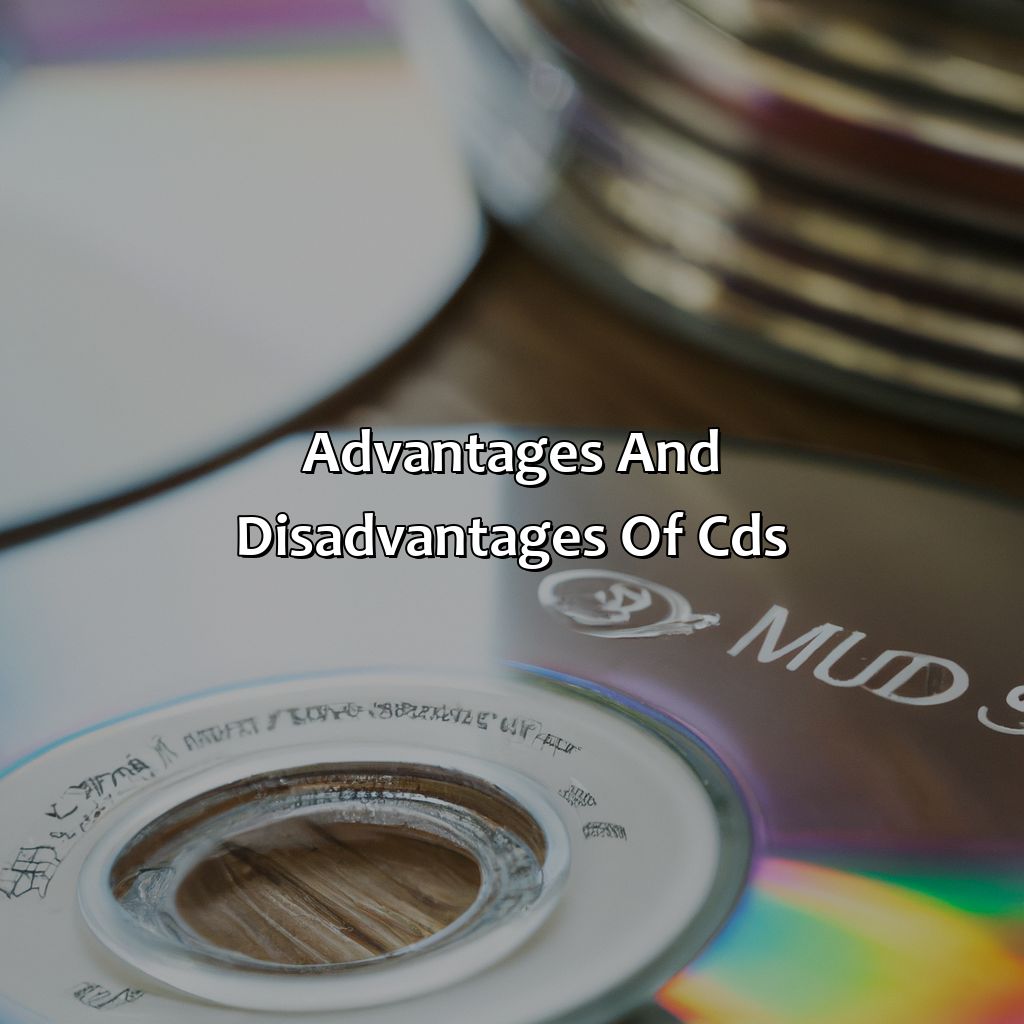What Is A Better Investment Cds Or Mutual Funds?
Key Takeaways:
- CDs offer low-risk options with guaranteed returns: If you prioritize safety over high returns, CDs are a better option as they guarantee a fixed rate of return for a set period. This means you won’t lose money and your returns are assured.
- Mutual Funds offer potential for higher returns: If you can accept some risk for potentially higher returns, mutual funds are the better choice. These funds are generally more diversified and offer the potential for better returns, but there is also a chance of losing money.
- Investment goals, risk tolerance, and liquidity needs are important factors for choosing between CDs and Mutual Funds: Consider your investment goals, risk tolerance, and liquidity needs before making a decision. If you need easy access to your funds, mutual funds could be better. If you’re saving for a specific purpose and don’t want your funds tied up, CDs could be a better choice.
Are you trying to decide which is the better long-term investment, CD’s or mutual funds? You’ll find the answer by reading this article which examines both options and their benefits. Weigh the pros and cons to make an educated decision for your financial future.
Comparison between CDs and Mutual Funds
CDs VS Mutual Funds: A Professional Comparison
When looking at investment options, CDs and mutual funds are both popular choices. CDs offer a guaranteed return with a fixed interest rate and a set term length, while mutual funds are collections of investments that allow for more potential growth but also come with higher risk. A comparison between these two options is necessary to determine which one is a better investment.
The following table provides a comparison between CDs and mutual funds based on several important factors:
| Factors | CDs | Mutual Funds |
|---|---|---|
| Return | Fixed interest rate | Potential for higher return with fluctuations |
| Risk | Low | High |
| Liquidity | Low | High |
| Fees | Low | High, including management and sales fees |
| Investment Period | Fixed term | Ongoing |
| Diversification | None | Diversified portfolio |
It is important to note that while CDs offer a guaranteed return, the return is often lower compared to mutual funds. On the other hand, mutual funds come with higher risk and fees, but offer the potential for higher returns.
Another important aspect to consider is that CDs have a fixed term length, so investors will not have access to their money until the term is up. Meanwhile, mutual funds offer high liquidity, allowing investors to access their money at any time.
It is said that the first mutual fund was launched in 1924, with the Massachusetts Investors Trust. Initially, mutual funds were only available to the wealthy, but they have since become a popular investment option for retail investors.

Image credits: retiregenz.com by David Duncun
Advantages and Disadvantages of CDs
In this section, we will discuss the benefits and drawbacks of investing in CDs. Investing in CDs comes with several advantages and disadvantages.
Advantages and Disadvantages of Investing in CDs:
- Advantages:
- Guaranteed return on investment.
- Low-risk investment option.
- CD terms ranging from a few months to several years.
- FDIC insured up to $250,000 per account, providing security for the investor’s money.
- Can be used for short-term financial goals.
- CD rates are higher than traditional savings accounts.
- Disadvantages:
- Early withdrawal penalties may apply if an investor cashes out before the term of the CD ends.
- Interest rate may be lower than other investment options.
- CDs may not keep pace with inflation.
- Limited liquidity as investors cannot access their money before the term of the CD ends.
- May not provide significant returns for long-term financial goals.
- If interest rates rise, the investor may miss out on better investment opportunities.
It is important to keep in mind that CDs may not be the best long-term investment option for everyone. It may be more beneficial for investors with short-term financial goals, or those who prioritize low-risk investment options.
Investors should also consider the potential loss of purchasing power due to inflation when investing in CDs for long-term goals. However, if safety is the priority, CDs may be the appropriate choice.

Image credits: retiregenz.com by Harry Duncun
Advantages and Disadvantages of Mutual Funds
Understanding Mutual Fund’s Benefits and Drawbacks
When considering the potential of investing in Mutual Funds, it is essential to evaluate their strengths and weaknesses carefully. Knowing the advantages and disadvantages of Mutual Funds can help you make informed investment decisions.
Advantages and Disadvantages of Mutual Funds
- Advantages:
- Professional Management and Expertise.
- Diversification.
- Liquidity.
- Disadvantages:
- Fees and Expenses.
- Less Control and Flexibility.
- Risk of Unfavourable Returns.
Unique Details About Mutual Funds
It is essential to understand that there are different types of Mutual Funds, such as equity funds, bond funds, and money market funds. Each fund has its own unique features and characteristics that can affect potential returns. Additionally, investors should also evaluate their risk tolerance and investment goals before making a decision.
A True Story about Mutual Funds
A friend once shared a story of his experience investing in a Mutual Fund. Initially, he was excited about the potential returns, but he soon realized the high fees and expenses associated with it. Despite this, he held onto the fund, hoping to see a return on his investment. Unfortunately, the fund underperformed, and he ended up losing money. This anecdote highlights the importance of thoroughly researching and evaluating Mutual Funds before making an investment.

Image credits: retiregenz.com by David Duncun
Factors to Consider when Choosing between CDs and Mutual Funds
Investors are always searching for the best options to invest their money, and two popular investment options are Certificates of Deposit (CDs) and Mutual Funds. To make the best decision, one must consider various factors to choose between CDs and Mutual Funds. Here are the factors to consider:
- Investment Goals: Determine your investment goals, including your short-term and long-term objectives, risk appetite and the investment horizon, before deciding between CDs and Mutual Funds.
- Risk vs. Return: Consider the trade-offs between the risk and the return, as Mutual Funds carry a higher risk and offer higher returns than CDs, which have lower risk and offer lower returns.
- Liquidity: While CDs have fixed terms, Mutual Funds can be bought or sold at any time. Consider your liquidity needs before making the final decision.
- Tax Implications: CDs and Mutual Funds differ in tax treatment and implications, including dividend payouts, capital gains and losses, and tax rates. Consult a tax professional to understand the impact of your decision.
- Currency Exchange Rates: If you plan to invest in CDs or Mutual Funds denominated in foreign currency, then exchange rate fluctuations should be considered.
Additionally, investors should consider any fees associated with the investment, such as management fees, brokerage fees, and early withdrawal penalties. It is essential to understand the details of the available options before investing.
A true story of an investment success is that of a retired couple who wanted to invest their retirement savings in a low-risk investment. They chose to invest in CDs over Mutual Funds as they wanted a fixed interest rate and a steady income stream. They were happy with their decision, and the money they invested gave them the security and stability they were looking for in their retirement.

Image credits: retiregenz.com by Joel Woodhock
Five Facts About CDs vs Mutual Funds:
- ✅ CDs (Certificates of Deposit) are low-risk investments that offer a fixed rate of return for a specific term, while mutual funds are higher-risk investments that involve buying shares of a diversified portfolio of stocks. (Source: NerdWallet)
- ✅ CDs can be FDIC-insured up to $250,000 per account, whereas mutual funds are not insured. (Source: Bankrate)
- ✅ CDs are suitable for short-term savings goals, while mutual funds are better for long-term investment goals. (Source: The Balance)
- ✅ Mutual funds offer greater potential for higher returns, but also come with higher risks and fees. (Source: Investopedia)
- ✅ The choice between CDs and mutual funds ultimately depends on your financial goals, risk tolerance, and investment time horizon. (Source: Forbes)
FAQs about What Is A Better Investment Cds Or Mutual Funds?
What is a better investment: CDs or mutual funds?
Both CDs and mutual funds are viable investment options, but it ultimately depends on your financial goals and risk tolerance.
What are CDs?
CDs, or certificates of deposit, are a type of savings account offered by banks or credit unions. They typically have fixed terms and interest rates, and offer low-risk investments with guaranteed returns.
What are mutual funds?
Mutual funds are investment portfolios made up of a variety of stocks, bonds, and other securities. They are managed by financial professionals and offer more varied investment options with the potential for higher returns.
What are the risks associated with CDs?
CDs have very little risk associated with them, but they have lower returns compared to other types of investments. Additionally, if you withdraw your money before the CD has matured, you may face penalties.
What are the risks associated with mutual funds?
Mutual funds come with more risk than CDs, as they are invested in the stock market and subject to its fluctuations. However, they offer the potential for higher returns and can be diversified to mitigate risks.
Which option is right for me?
Choosing between CDs and mutual funds depends on your individual financial goals and risk tolerance. If you are looking for a low-risk investment with predictable returns, CDs may be a better option. If you are comfortable with a higher level of risk and want the potential for higher returns, mutual funds may be a better fit.
